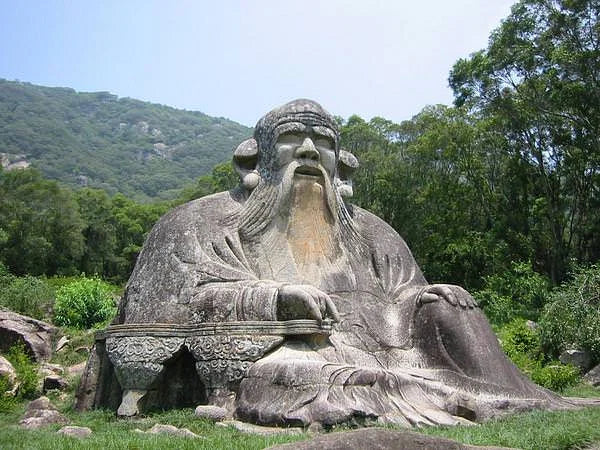The ancient Chinese philosopher Laozi (Lao Tse), known for his seminal work, the Tao Te Ching pronounced “Dow Duh Ching,” famously wrote: 'Those who know do not speak; those who speak do not know.' This statement presents a paradox, as Laozi himself was communicating through his writings. However, it does not necessarily imply that he lacked understanding or was insincere. Instead, it underscores the idea that true wisdom transcends mere words and concepts, emphasizing the limitations of language in conveying profound truths.
In that moment of realization, Laozi may have understood that by elucidating his philosophy, he could be inadvertently drawing himself away from the tranquility he aimed to embody. Engaging in the act of explaining and rationalizing abstract concepts such as consciousness can subtly elevate our stress levels. When we delve into explicating consciousness instead of genuinely experiencing it, we risk diluting its essence. We may inadvertently develop attachments to certain thought patterns that do not authentically reflect the nature of reality.
These are merely potential outcomes and thus, a mark of wisdom. Great masters like Laozi cautioned philosophers like us to tread carefully when it comes to overthinking and presuming knowledge. Excessive analysis can result in physical paralysis.
Laozi might have experienced a conflict between his desire for inner peace and the perceived external need to disseminate his teachings. It's possible that he grappled with the notion of saving the world or felt a grandiose impulse to impart his messages. Alternatively, he could have been compelled by an inner drive to express the profound truths that flowed through his mind, finding joy in the act of sharing his wisdom with others.
Another perspective is that Laozi may have been using his own writing as a means to continue teaching and reinforcing his own understanding of the principles he espoused.
Even the Buddha, despite his enlightenment, continued to teach throughout his life until his passing. This illustrates that the pursuit of knowledge and wisdom is a continuous journey, even for those who possess deep insight into the nature of reality.
The idea that "those who do not know" can also be interpreted to suggest that all philosophies, no matter how profound, are ultimately limited and imperfect.
Human-created philosophies are subject to breakdowns, paradoxes, and limitations. As humanity evolves and grows, we often build upon existing philosophies, leading to the emergence of new perspectives that may challenge or supersede previously held truths.
"Those who speak do not know" prompts speculation about Laozi's intentions behind sharing his wisdom. Was he genuinely detached and enlightened, understanding the illusory nature of all things, or did he teach out of compassion for humanity's suffering? It's possible he felt a deep sense of duty, believing that sharing his insights was essential for the world's well-being. Alternatively, he might have been a standard self-help figure predating YouTube, seeking to ensure his safe passage out of China without losing his gold coins at the city gates. According to legend, he supposedly authored his book under duress from a Lord who insisted he record all his knowledge before departing for the mountains. His teachings could be hurried or incomplete, yet still holding truths within.
In essence, this concept highlights the dynamic and evolving nature of human understanding and the inherent limitations of any fixed philosophical system in capturing the entirety of truth and reality.
Overthinking can be described as the process of excessively activating and engaging all the mental "TVs" in our minds to solve problems, create philosophies, or serve certain purposes. This can lead to a continuous cycle of overanalyzing, worrying, and dwelling on thoughts without finding resolution.
When we engage in seeking knowledge to find relaxation, it's important to approach it with mindfulness and ensure that our pursuits are driven by genuine compassion. It's essential to translate that knowledge into action that benefits not only ourselves but also others in our community.
One powerful way to share wisdom is by setting a positive example through our actions and behaviors, serving as a role model for others to follow. Additionally, freely offering wisdom and knowledge to those in need can often have a more profound impact than charging for such guidance, especially when the aim is to help alleviate suffering and promote well-being in both ourselves and others.
